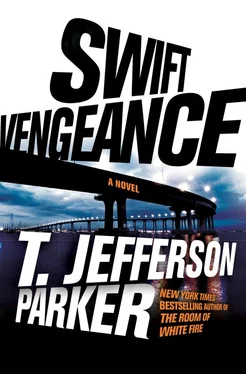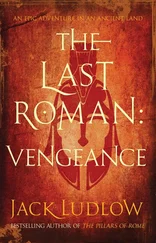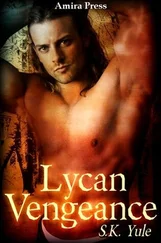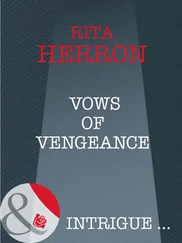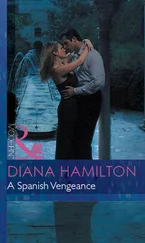“No. He came up in the net.”
“He strikes me as unusual and maybe lost,” said Hadi. “But not murderous. Caliphornia. Such a strange name. Tea, Roland?”
“No, thank you.”
“I read about the shootout at your home last year and I was glad you were not killed or wounded.” A wry smile. “You are becoming an action figure. Such as my sons see on TV. You are now famous for three things in San Diego.”
Yes, my fame. Most recently augmented by last year’s helicopter shootout and fiery crash, as referenced by Joan Taucher earlier in the day. In this debacle, one notorious celebrity had been burned dead, and one psychiatrist wounded. On my property. My watch. Much media and speculation, and a lot of truth left untold.
Another part of my notoriety was the fatal shooting of a young black man by a San Diego sheriff’s deputy back in 2009. The deputy was my partner and I was standing not ten feet away when he shot. I had drawn but held fire. I told the IA investigators why I decided not to shoot. My words cost my partner his job. And cost me my reputation within the department. Coverage and controversy. Lots of bad blood. My assignment to the JTTF was widely and correctly seen as a form of punishment for breaking rank, shattering the blue brotherhood, costing a good man his job.
The third pillar in my local notoriety is the plane crash that killed Justine. Much coverage on that, too, though of a different kind. The media was actually brief and respectful of my privacy, and quickly onto the next stories. I was envious of the ability to move on.
“It’s been a year and a half since my most recent disaster,” I said. “I enjoy the quiet life.”
“May it continue, inshallah. ”
“And you, Hadi? How are you and Masjid Al-Rribat in these heated days?”
He leaned forward and touched his fingertips again. “I am small in the eyes of Allah and smaller in the eyes of America. I enjoy this smallness. But the masjid? So many eyes are upon us. It is very hard to be a Muslim in America. There is some tolerance, yes. But there is suspicion, too. And beyond the suspicion there is fear. And fear can turn to hate, as we all have seen. So we worship our god and we take care of our own. There is much about this life we cannot know.”
“Amen to that.”
“Alhamdulillah.”
“Yes. God be praised.”
We stood. I looked down at Hadi’s shiny glass desktop, in which I saw a distorted reflection of his trunk and face, and decades of nicks and scratches. Followed by a sudden errant thought: “So did you say when Hector was up here he emptied his backpack on your desk? Poured the contents right out in front of you there?”
“Exactly.”
“Why?”
“He is impulsive. I think he wanted to display his... commitment.”
“By showing you what?”
Hadi recapped for me: a newly bought Qur’an, the Noor Foundation edition. And two pamphlets written by an Orange County imam named Mustafa Umar — “Welcome to Islam” and “How to Pray.” Hector’s pack also contained a rubber-banded stack of invitations to the “Treasures of Araby” collection at a showroom in Solana Beach.
Hadi indicated the table beside him. “As you see, he left a few of those. He also had an Arabic language CD program still in its box. Mr. Padilla assured me that he had bought the program used online, at a good price.” A small smile.
“That was all?”
“No. There was also an energy drink, two chocolate donuts with peanuts in a plastic box with a top, so they wouldn’t be crushed. There was a clear Baggie of brown tablets. I have no idea what they were. And he had a sharpening stone in its box. The box cracked loudly into the glass desktop, but only made a small mark. The stone itself spilled out.”
“A sharpening stone.”
“Yes, Roland. A whetstone. With which someone might sharpen a knife.”
A jump in the heart rate. “Describe it.”
“The stone was maybe three by eight inches, with a wooden base. I can’t remember who the maker was. My impression of the box and the stone was that they were new.”
When Hadi had finished his description, I asked him to describe the whetstone again. Patiently, he did. The scar on my forehead tingled. I wrote down his words in my notebook as accurately as I could. I have big hands and write slowly with a pen. Finally, I rose and slipped my notebook into my pocket. “You’ve been generous with your time.”
Hadi stood, too, handed me one of the “Treasures of Araby” flyers that Hector had given him. “I actually might go to this. It looks interesting and that gallery has a good reputation. The opening night reception is free and open to the public.”
I glanced at the rugs and vessels and jewelry pictured there. Gallerie Monfil Presents the Treasures of Araby.
The stairs creaked as we walked back down. The smell of food was stronger and the young Muslims were already assembling for Hadi Yousef’s class. They looked at me, some curious, some appraising.
“You will always be suspicious here, Roland. But always welcome.”
“Thank you, Hadi.”
He walked me outside. “Your soul is troubled.”
“Beheadings trouble me.”
We stopped at the front gate. Hadi put his hands behind his back and contemplated me. “Beheading. Caliphornia?”
I nodded.
“So, your keen interest in Hector’s whetstone. There could be an innocent explanation for the stone.”
“That would be wonderful.”
“I will pray for your success in preventing violence, Roland.”
“Help me if you can, Hadi.”
“I will try, Allah willing.”
“He should be.”
I parked across the street and three houses down from Hector O. Padilla’s home in El Cajon. The moon was a waxing crescent and a tall palm reached toward it, and for a moment I was in Fallujah in the spring of 2004.
This was an older neighborhood with streetlights few and far between and the trees grown tall. There was a good breeze and I could hear the sycamore leaves hitting the hood of my truck. No car in Padilla’s driveway and the door of his garage was shut.
Light came from inside the house and garage. The front yard was small and square and marked by a low wall overgrown with ivy. I raised my night-vision binoculars. The world went green and dreamy, somehow less than real. I focused through the autumn-bare branches of a liquidambar tree. A security-screened front door. Address plainly visible on the stucco house front, no mail visible in the open black wall box below the numbers. Padilla’s window blinds let out only a thin frame of light.
Watching for someone who doesn’t know you’re there is a strangely powerful thing. Such intimate detachment. My truck has barely legal blackout windows, which make me even less apparent. Lindsey told me she felt like God Herself when she was flying a drone mission and the Reaper cameras and sensors would relay all the live, nearly real-time activity taking place on the earth below. Seven thousand miles away. God Herself, watching her kill-list target crawl across the desert on his elbows, trying to collect the legs that the Headhunters had just blown off him with a laser-guided Hellfire missile. Which meant the man was functionally dead. Which meant Lindsey had accomplished her mission. Which filled her with satisfaction. And horror. And eventually drove her mad.
My fast-food tacos weren’t bad. Still warm in the bag and plenty of hot sauce. Extra napkins. Had an energy drink, checked messages on the phone, listened to the radio news. I spend a lot of time watching people. I enjoy it. It’s like a movie you haven’t seen. Some are better than others, of course. You learn to let the hours just be hours.
Читать дальше
